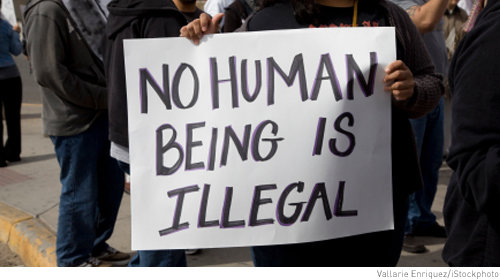
Today is International Migrants Day, a day to reflect on the human rights of immigrants and migrant communities. As the ACLU blogged last week, despite accomplishments on some key human rights issues, the U.S. still has a long way to go to fulfill its promises to vulnerable members of our society such as immigrants and racial and ethnic minorities.
Last Monday, the ACLU brought these concerns to the United Nations Human Rights Committee, a body of independent experts that next year will examine the United States’ report on its compliance with the International Covenant on Civil and Political Rights (ICCPR), a fundamental human rights treaty the U.S. ratified in 1992. Our submission suggests critical questions the committee should pose to the U.S. during its review next October.
Since the U.S. was last reviewed by the committee in 2006, several states have passed discriminatory laws that encourage racial profiling and undermine the constitutional guarantee of equal protection. As we wrote in our submission:
Following the 2010 passage of Arizona’s notorious anti-immigrant law (SB 1070), several other states have passed similar legislation … Although considerable attention was paid to Arizona’s law, there has been less scrutiny of similar bills that have passed in Alabama, Georgia, Indiana, South Carolina, and Utah. All of these laws have as their common focus the investigation and detention of persons who are suspected of lacking the required authorization to live or work in the United States. The bills also share the common problem of having no standards to guide law enforcement personnel in assessing whether there is a “reasonable suspicion” that a person is an undocumented immigrant, leaving individual officers no choice but to resort to racial and ethnic profiling as tools of law enforcement, even where the bills include blanket prohibitions against such practices.
These laws deeply impact racial and ethnic minorities and people perceived to be immigrants. Jesus Cuauhtémoc Villa is a New Mexico resident who goes to college in Arizona. Villa does not have a passport and does not want to risk losing his birth certificate by carrying it with him. However, he worries he will be racially profiled in Arizona, and thus arrested and detained if he is unable to produce a valid form of identification that would prove his citizenship to police. The ACLU is challenging the Arizona anti-immigrant law on behalf of Villa and others.
Although the Department of Justice has also filed lawsuits challenging SB 1070 and similar measures, policies administered by the Department of Homeland Security such as the “Section 287(g) Agreements,” which effectively turn local law enforcement officers into immigration agents - albeit ones with minimal training and virtually no oversight or accountability, and the “Secure Communities” program, under which everyone arrested and booked into a local jail has their fingerprints checked against ICE's immigration database, themselves violate U.S. human rights obligations.
While the U.S. addressed some of these issues in its report to the Human Rights Committee in 2011 – notably describing lawsuits filed to combat anti-immigrant laws – its report lacked concrete information on state and local compliance with the ICCPR, and fell short of addressing concerns expressed by the committee.
These abuses have drawn the ire of the international community: In 2009 the U.N. Committee charged with monitoring compliance with the international anti-discrimination treaty (CERD Committee) wrote to the Obama administration urging urgent action to combat racial profiling, and in May 2010 a number of U.N. independent experts issued a joint statement condemning the passage of SB 1070 and warning against “a disturbing pattern of legislative activity hostile to ethnic minorities and immigrants.”
While the legal challenges against the Arizona law and other measures will continue, the ACLU is calling on the committee to encourage the U.S. government to, among other things:
- End the 287(g) program, including all jail partnerships and task force agreements.
- End the “Secure Communities” program.
- Support the passage of the End Racial Profiling Act (ERPA).
- Vigorously oppose existing and new state and local anti-immigrant measures, and take steps to protect immigrant communities where such measures have taken effect.
The U.S. government can and should begin implementing these reforms today. Existing 287(g) agreements are due to expire at the end of the year, and we hope the Obama administration will terminate all existing agreements and reject all pending applications in an effort to bring its policies in line with its human rights obligations.
To learn more about the involvement of civil society in the ICCPR review process, click here: http://www.ushrnetwork.org/our-work/project/iccpr-international-covenant-civil-political-rights#howtoICCPR.
Learn more about immigrant rights: Sign up for breaking news alerts, follow us on Twitter, and like us on Facebook.

